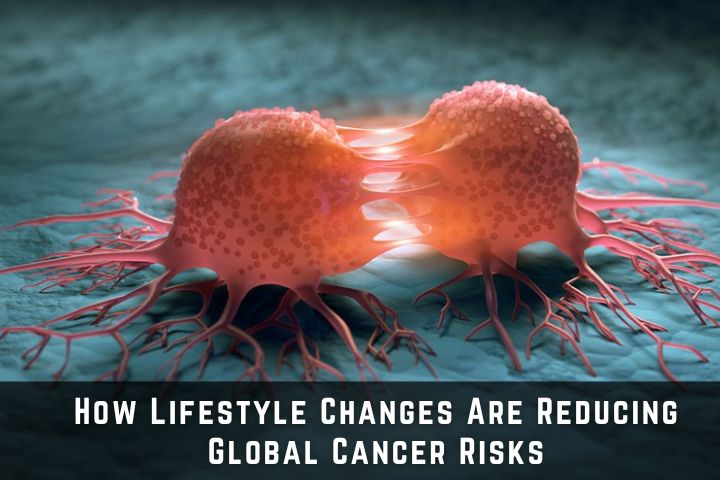How Lifestyle Changes Are Reducing Global Cancer Risks
Cancer has long been one of the leading causes of death worldwide, but recent decades have shown a promising shift. As awareness grows and people adopt healthier habits, global cancer risks are gradually declining. While medical advancements and early detection play major roles, lifestyle changes—such as improved diet, regular exercise, quitting smoking, and reduced alcohol consumption—have become equally crucial in preventing the onset of many cancer types. Understanding how everyday choices impact health can empower individuals to live longer, healthier, and cancer-free lives.
The Power of Nutrition and Healthy Eating Habits
One of the most effective ways to lower cancer risk lies in the food we consume. Studies have consistently shown that a balanced diet rich in fruits, vegetables, whole grains, and lean proteins helps protect the body from chronic diseases, including cancer. These foods are packed with antioxidants, vitamins, and minerals that support the immune system and neutralize harmful free radicals—unstable molecules that can damage cells and trigger cancer growth.
On the other hand, excessive consumption of processed foods, red meats, and sugary beverages has been linked to higher risks of cancers such as colorectal, pancreatic, and breast cancer. Replacing processed snacks with natural alternatives, limiting salt and sugar intake, and staying hydrated with water instead of soda can make a noticeable difference over time.
Another key aspect is maintaining a healthy weight. Obesity is a major risk factor for several cancers, including liver, kidney, and endometrial cancer. By managing portion sizes, eating mindfully, and avoiding late-night overeating, individuals can keep their metabolism and body weight in check—significantly lowering their overall cancer risk.
Exercise and Active Living: The Natural Cancer Shield
Physical activity is another vital element in cancer prevention. Regular exercise not only strengthens the body and improves cardiovascular health but also helps regulate hormones like insulin and estrogen, which are linked to cancer development when imbalanced. Research indicates that even 30 minutes of moderate activity—such as brisk walking, cycling, or yoga—five times a week can reduce the risk of colon, breast, and lung cancers.
An active lifestyle also improves circulation, reduces inflammation, and boosts immune function, enabling the body to better detect and destroy abnormal cells before they become malignant. Moreover, staying active helps prevent obesity, a key driver of many cancer types.
It’s important to note that exercise doesn’t necessarily mean intense gym workouts. Simple habits like taking the stairs instead of the elevator, walking short distances instead of driving, or engaging in outdoor sports with family and friends contribute greatly to maintaining good health. The consistency of physical activity matters more than intensity—making regular movement a sustainable, lifelong habit.
Avoiding Toxins and Embracing a Smoke-Free, Balanced Life
Lifestyle choices related to substance use have perhaps the most direct impact on cancer risk. Smoking remains the single largest preventable cause of cancer worldwide, responsible for nearly one in five cancer deaths. Quitting smoking—even after years of use—can drastically reduce the risk of lung, throat, bladder, and mouth cancers. Similarly, avoiding exposure to secondhand smoke protects non-smokers from these risks as well.
Alcohol consumption, too, has been closely linked to cancers of the liver, breast, and esophagus. Moderation is key—limiting intake or avoiding alcohol entirely can significantly lower one’s cancer risk. Additionally, minimizing exposure to environmental pollutants, harmful chemicals, and UV radiation helps reduce the chances of skin and lung cancers. Using sunscreen, staying indoors during peak sunlight hours, and wearing protective clothing can go a long way toward maintaining skin health.
Equally important is mental well-being. Chronic stress can weaken the immune system, disrupt hormonal balance, and indirectly increase cancer risk. Incorporating mindfulness practices such as meditation, adequate sleep, and work-life balance helps maintain both emotional and physical health.
Conclusion
The connection between lifestyle and cancer prevention is undeniable. Small, consistent changes in daily routines—healthy eating, regular exercise, quitting smoking, managing stress, and avoiding excessive alcohol—can collectively create a powerful defense against cancer. As global awareness grows, more people are taking control of their health and making informed choices that not only reduce cancer risk but also enhance quality of life.
Dr AV Cancer Institute provides the best services regarding this, offering advanced cancer prevention programs, early detection screenings, and personalized treatment plans that empower individuals to live healthier, cancer-free lives through medical excellence and compassionate care.

